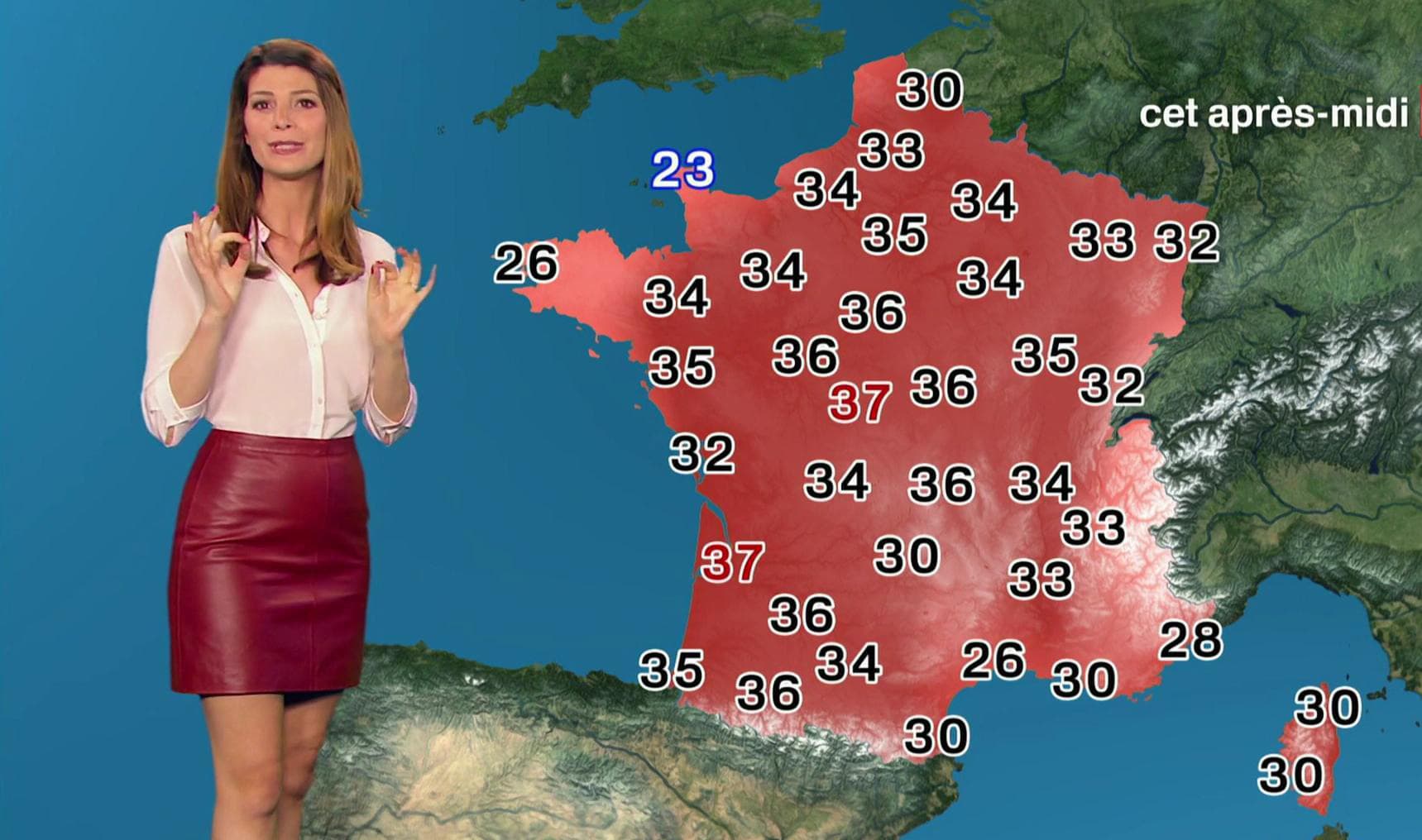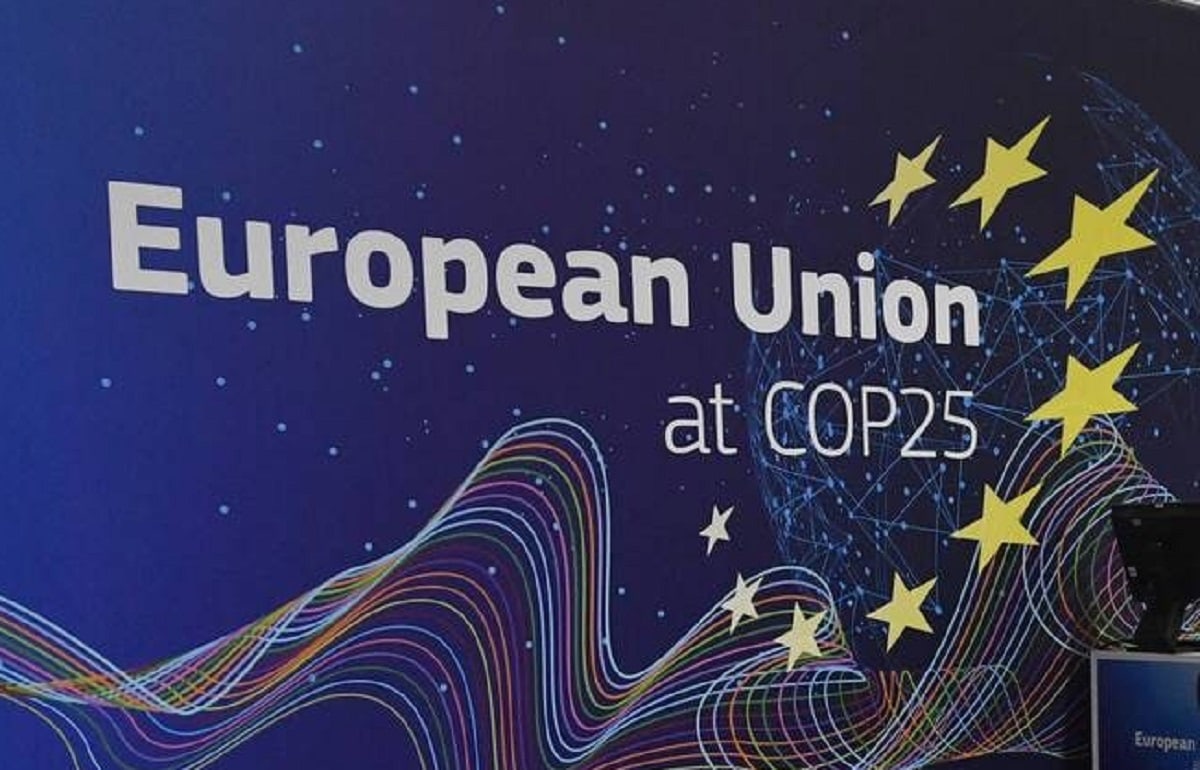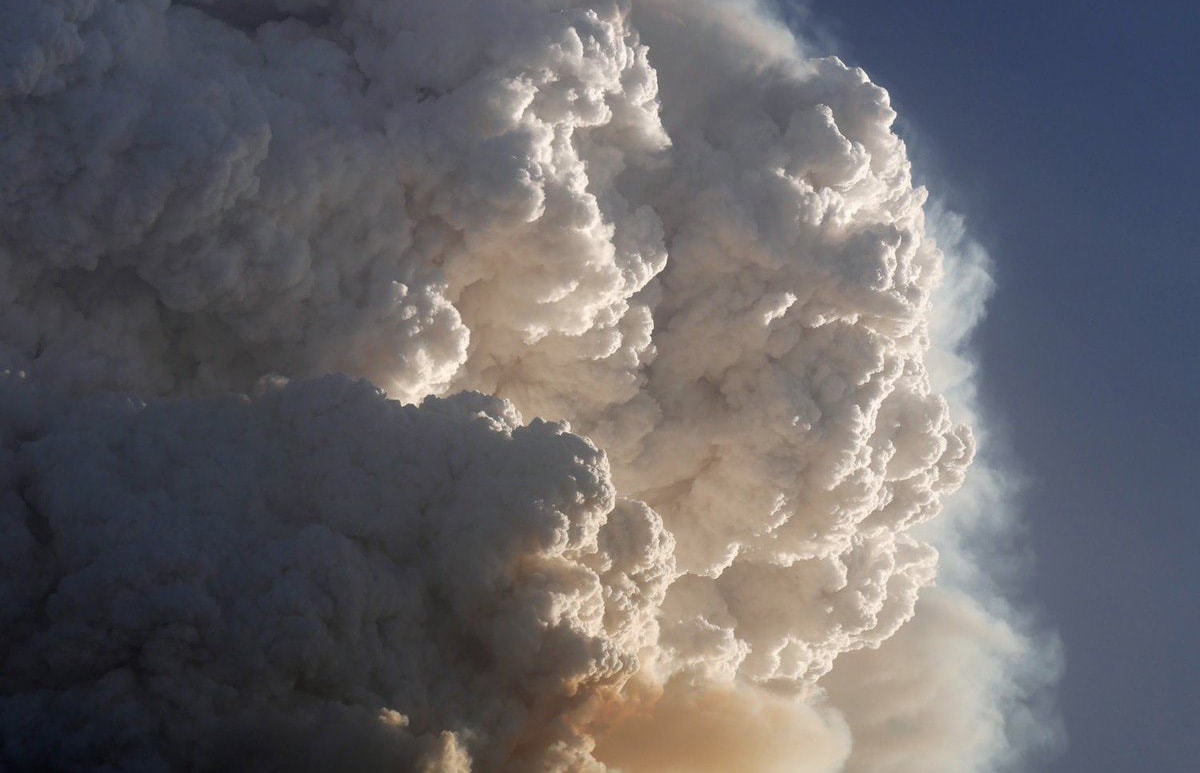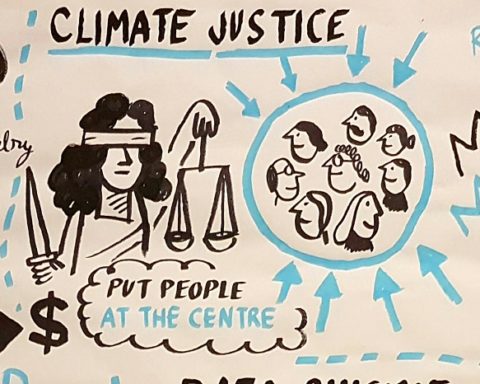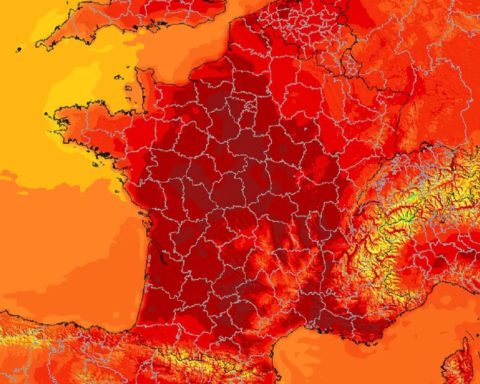For at least forty years, scientists have been alerting the world to the climate crisis. They have long preached in the desert like prophets of bad news. But things have changed. And the year 2019, in particular, has marked a turning point. The climate crisis is now part of our daily lives. Every weather report is an expression of the phenomenon. Violent episodes are multiplying before the world's revolted or distraught eyes. Here a cyclone of unprecedented size, there mega fires, elsewhere giant floods, landslides, increasingly long and numerous periods of heat waves. The forest that burns, Venice that sinks under water, the droughts that ravage, the biodiversity that collapses... We must face the facts, the earthlings are discovering a reality before which they feel powerless. While their rulers look the other way and carry on with their small affairs.
If there is one television program that has always had the highest audience ratings in any country, it is the weather report. Usually located at a peak viewing time, it is expected as an appointment not to be missed. The presenters of the weather have become stars and their oracles assiduously followed.
Paradigm shift in weather
But, by tradition, caution or laziness, the weather pythies were careful not to mix tea towels and napkins. What they talk about is the weather, the weather today and what it will be like tomorrow. Weather is another story, reserved for scientists who like ice cores and long-term curves. And bringing an unusual episode of extreme cold in such and such a corner of the territory, to the long movement of the planet, was considered to be a most daring adventure.
However, things have changed very recently. For every weather report has become an expression of ongoing climate change. To be more precise, every weather report is a local expression of global climate change. Climate and weather are no longer separated as we have long been hammered.
Climatologist Reno Knutti leads a team of Swiss and Norwegian researchers. They have just published in the journal Nature Climate Change a study which demonstrates, through machine learning techniques applied to huge weather databases, that the footprint of global climate change on local weather dates back precisely to the year 1999. They observed that the phenomenon has been increasing, and that from the year 2012 onwards, the deep imprint of climate on the weather could be seen every day. For these experts, this means that the footprint of climate change is so large that it now exceeds the daily variability of weather on a global scale.
These new findings suggest that climate change is more deeply rooted than we thought. On the bright side, this could help to link long-term climate trends more closely to short-term weather events and to better anticipate future events. Reno Knutti says: " it might help us prepare for the worst ".
Why not enjoy unlimited reading of UP'? Subscribe from €1.90 per week.
2019 marks a turning point
This rooting of climate change in the daily weather is also inevitably manifested in our minds. We speak of "awareness" of the climate emergency as if it were a sudden attack of fever. In reality, the perception in everyday life of climate change is an extremely recent phenomenon. 2019 will undoubtedly have marked a turning point in this respect. Certainly, anyone who was reasonably well-informed was familiar with the IPCC reports and had sometimes followed with passion the episodes of the COP series, particularly that of Paris in 2015. The media did their job, sometimes with too much taste for sensational news rather than background phenomena.
What was striking in 2019 was the crowd's voice in the climate concert that had previously been played in mute, between knowledgeable specialists. A crowd of young people first, legitimately worried about the planet that their parents would leave them, outraged at the inaction of adults, and especially politicians. This crowd found a face in the person of Greta Thunberg. A stranger of barely fifteen years old, who had become the spokesperson for a generation and a world star nominated for the Nobel Prize. This young Swedish woman speaks out loud and clear in all international forums and leads millions of young schoolchildren and high school students who demonstrate every week to demand action on climate change.
Other young people, as if they sensed the coming apocalypse, are embarking on a race towards civil disobedience. The Extinction Rebellion movement manifests in all regions of the world with a motto: " when hope dies, action begins! ".
2019 is also the year in which the IPCC hit very hard. Usually its reports are written on the line and every word is the fruit of the compromise of a scientific community allergic to false news. As a result, the reports of the IPCC are dense, complete, a bit soporific, and one has to search between the lines to find bursts of words on a subject as sensitive as the global climate. And yet last year the report published by the IPCC had the effect of a sledgehammer blow: we only have twelve years left to act. After that, it will be too late.
Faced with this fatal calendar, public opinion suddenly realised that we were very far from the mark. While the UN, taking up the IPCC's recommendations, states that carbon emissions must decrease by 7.6 % per year by 2030 to have a chance of remaining below 1.5°C of temperature increase, the updated figures, published for the year 2019, show not a decrease but an increase in CO2 emissions into the atmosphere. As if we had not understood anything.
At the same time and in the same year 2019, the COP 25 held in Madrid was a fiasco. The plans to combat global warming announced by the States proved to be far from being equal to the crisis. This news is enough to discourage the most optimistic, especially since the weather reports on world television stations each day bring their share of worrying news. A mega-cyclone in Mozambique, a typhoon never seen before in Japan, an unprecedented heat wave in Europe, devastating fires in Africa, California and now Australia. Floods and landslides in Asia, and Venice drowned by its own lagoon scaring away tourists who came to spend Christmas in the City of the Doges.
What has come to light at this turning point in 2019 is that we are all equal in the face of the world's crises. Our nations may have the most advanced technology, but they are powerless and helpless in the face of 70-metre-high flames, uncontrollable floods and devastating winds. We see disfigured territories, victims, destruction, displacement; we are all the more compassionate because we know that this can happen to us too. But what is fuelling the growing anger is that we can only blame ourselves. Global warming is not caused by a whim of the gods but by the folly of mankind. We see with sadness Australia burn but we know that its right-wing Prime Minister, Scott Morrison, is a fierce climatoskeptic, a close friend of the powers of the fossil industries and that he will always prefer, even in the face of flames, to favour the business of the coal industry rather than the treasures of flora and fauna that his country harbours.
In the past we used to talk about rain and sunshine among our neighbours. Nowadays, the climate has become the focus of attention everywhere on the planet. The Global Positive Forum conducted a study among 21,000 citizens living in the G20 countries (Argentina, Australia, Brazil, Canada, China, France, Germany, the United Kingdom, Indonesia, India, Italy, Japan, South Korea, Mexico, Russia, Saudi Arabia, Turkey, the United States and South Africa). To the question " What do you think is the most urgent problem facing political leaders today? ", the number one incoming answer concerns environmental issues.
While the global situation remains particularly critical, with ever-increasing greenhouse gas emissions, record-breaking temperatures, an unstoppable decline in biodiversity and accelerating deforestation, the citizens of the G20 countries are en masse calling their political leaders to action. Their message is unlikely to be heard.
It is, however, their everyday life to come.
To fight against disinformation and to favour analyses that decipher the news, join the circle of UP' subscribers.


